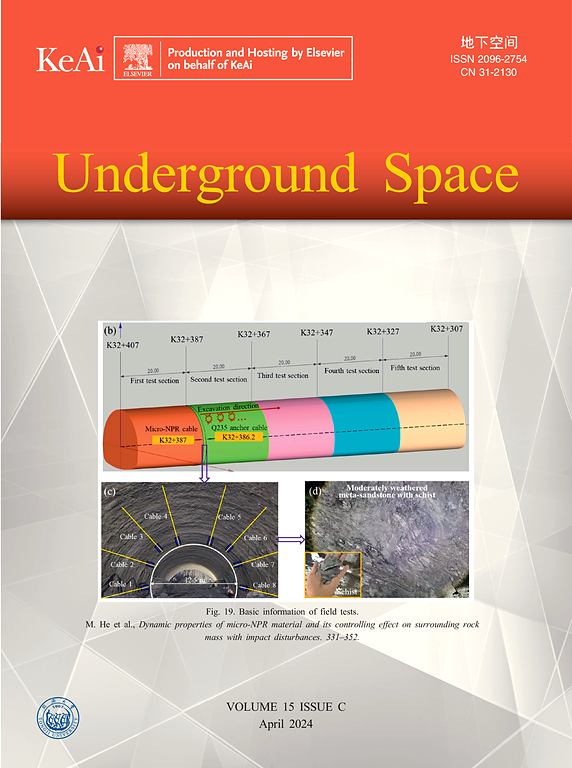Multi-fidelity knowledge inheritance with active querying for data-driven clogging prediction during mechanized tunneling
IF 8.3
1区 工程技术
Q1 ENGINEERING, CIVIL
引用次数: 0
Abstract
Muck clogging during shield tunneling often leads to reduced construction efficiency, increased costs and potential safety hazards. Traditional methods for predicting muck clogging primarily rely on the operator’s experience and conventional risk maps, but have limitations in dealing with complex construction conditions. To address these issues, this study presents a Monte-Carlo dropout (MCD)-assisted multi-fidelity neural network (MFNN) framework for effective prediction of muck clogging risk. First, a low-fidelity model is trained based on synthesized data using clogging risk maps. Subsequently, in-situ tunneling data are used as high-fidelity data to train multi-fidelity models. MCD serves to evaluate the uncertainty of the MFNN’s inference, combined with an active learning strategy to refine the low-fidelity model via iterative training of the high-fidelity model. Experimental results show that the MCD-assisted MFNN framework captures clogging features more effectively than traditional machine learning models that use only single-fidelity data, especially in scenarios with imbalanced data. This study provides a viable solution for complex problems in shield tunneling by fully utilizing both experiential knowledge accumulated in engineering practice and field monitoring data, demonstrating the potential of integrating knowledge and data in tackling some challenges that were previously unresolved.
基于主动查询的多保真度知识继承技术在机械化隧道掘进过程中的应用
盾构隧道施工中淤泥堵塞往往会导致施工效率降低、成本增加和安全隐患。预测淤泥堵塞的传统方法主要依赖于作业者的经验和传统的风险图,但在处理复杂的施工条件时存在局限性。为了解决这些问题,本研究提出了一个蒙特卡罗辍学(MCD)辅助的多保真神经网络(MFNN)框架,用于有效预测渣土堵塞风险。首先,利用堵塞风险图对综合数据进行低保真度模型的训练。随后,利用现场掘进数据作为高保真度数据训练多保真度模型。MCD用于评估MFNN推理的不确定性,并结合主动学习策略,通过迭代训练高保真度模型来改进低保真度模型。实验结果表明,mcd辅助MFNN框架比仅使用单一保真度数据的传统机器学习模型更有效地捕获阻塞特征,特别是在数据不平衡的情况下。本研究充分利用工程实践积累的经验知识和现场监测数据,为盾构施工中的复杂问题提供了可行的解决方案,展示了知识与数据相结合的潜力,可以解决一些以前未解决的挑战。
本文章由计算机程序翻译,如有差异,请以英文原文为准。
求助全文
约1分钟内获得全文
求助全文
来源期刊

Underground Space
ENGINEERING, CIVIL-
CiteScore
10.20
自引率
14.10%
发文量
71
审稿时长
63 days
期刊介绍:
Underground Space is an open access international journal without article processing charges (APC) committed to serving as a scientific forum for researchers and practitioners in the field of underground engineering. The journal welcomes manuscripts that deal with original theories, methods, technologies, and important applications throughout the life-cycle of underground projects, including planning, design, operation and maintenance, disaster prevention, and demolition. The journal is particularly interested in manuscripts related to the latest development of smart underground engineering from the perspectives of resilience, resources saving, environmental friendliness, humanity, and artificial intelligence. The manuscripts are expected to have significant innovation and potential impact in the field of underground engineering, and should have clear association with or application in underground projects.
 求助内容:
求助内容: 应助结果提醒方式:
应助结果提醒方式:


